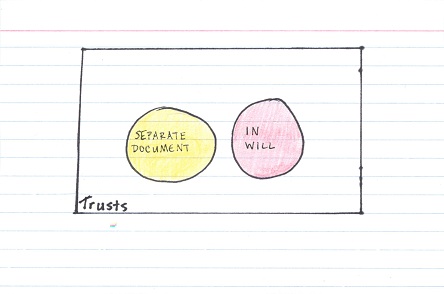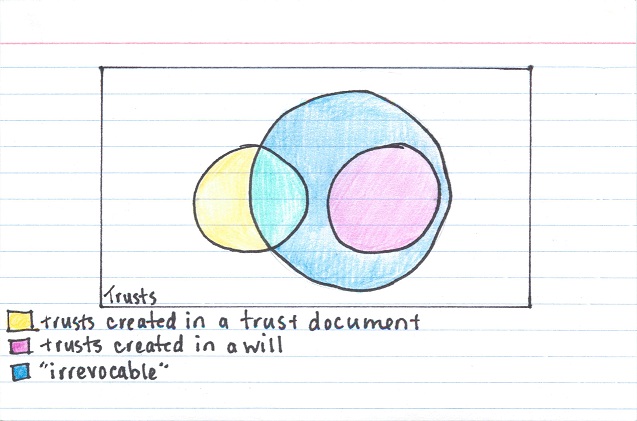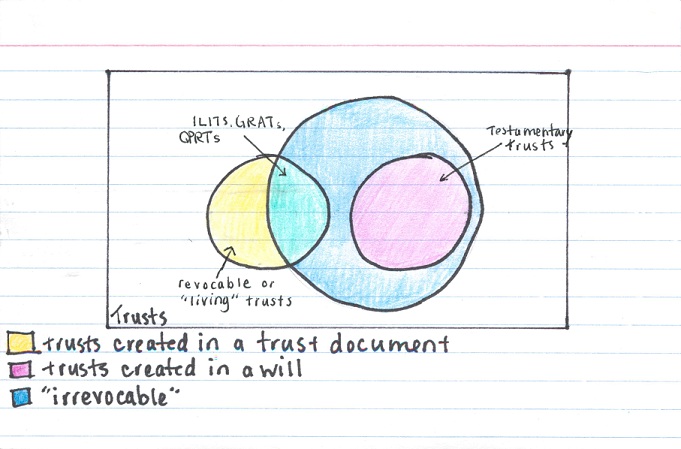Types of Trusts
There are different types of trusts common in estate planning.
Created in Will or Separate Document
For the most part, trusts are either created in a will or in a trust agreement or declaration.

Trusts created in a will are called "testamentary trusts." Since these trusts are written into the will, they don't have any legal effect until the will-maker's death (because wills don't have any legal effect until the will-maker's death). Before the will-maker's death, testamentary trusts don't exist.
Trusts created in a trust agreement or declaration document generally begin to exist when the document is signed.
Side Note: There are other types of trusts, like constructive trusts, resulting trusts, and oral trust. Constructive and resulting trusts aren't used in planning: generally, they're just used by courts to fix situations where a trust didn't work like it was supposed to or where there should have been a trust but there wasn't one. Oral trusts, i.e., trusts that are spoken and not written down are only allowed in some places and under very limited conditions, so I'm not even going to talk about them.
Irrevocable or Revocable
There's another important classification of trusts.

Some trusts are "irrevocable." An irrevocable trust is a trust that can't be revoked or 'taken back' by the grantor (the person who created the trust). When a grantor puts property into an irrevocable trust, he/she is generally giving it away.
Trusts that aren't irrevocable are "revocable." Revocable trusts are easy for the grantor to change or 'cancel.' And the property in a revocable trust can be taken back by the grantor.
Another Side Note: Why would anyone want an irrevocable trust? As part of an estate plan, irrevocable trusts are often used for wealth transfer tax planning. See, when you transfer property to an irrevocable trust, it isn't yours anymore. That means it isn't in your estate. If it isn't in your estate, your estate won't have to pay estate tax on it. Also, the transfer is a complete gift for tax purposes. So, transferring property to an irrevocable trust can be a good way to use up gift and/or GST tax exemptions and exclusions. I'll talk more about the uses of trusts in another post.
Putting Everything Together
So, how to these classifications of trusts fit together? Well, all testamentary trusts are irrevocable once they come into existence (remember: they come into existence at the will-maker's death), and some inter vivos (separate document) trusts are irrevocable.

You've probably heard of a "living" or revocable trust. The yellow space represents revocable trusts.
Maybe you have a will that's designed to establish testamentary trusts upon your death. Contingent or standby trusts are types of testamentary trusts. Those are all in the purple space.
Maybe you have or have heard of a life insurance trust or ILIT, a GRAT (GRATs have been in the news a bit lately), or a personal residence trust or QPRT. Those trusts are irrevocable trusts created by a separate document, so they're in the green space.
